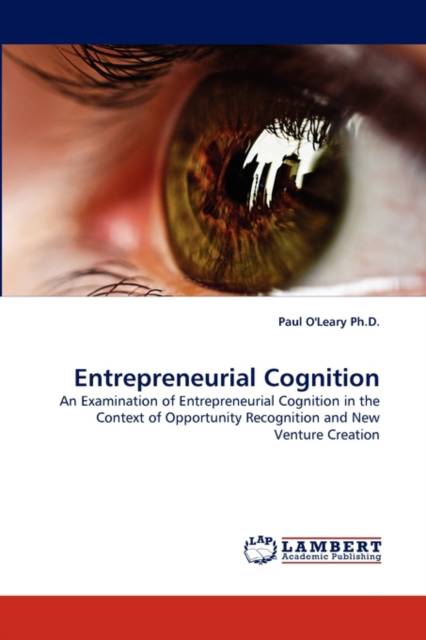
- Afhalen na 1 uur in een winkel met voorraad
- Gratis thuislevering in België vanaf € 30
- Ruim aanbod met 7 miljoen producten
- Afhalen na 1 uur in een winkel met voorraad
- Gratis thuislevering in België vanaf € 30
- Ruim aanbod met 7 miljoen producten
Zoeken
Entrepreneurial Cognition
An Examination of Entrepreneurial Cognition in the Context of Opportunity Recognition and New Venture Creation
Paul O'Leary
Paperback | Engels
€ 100,45
+ 200 punten
Omschrijving
It has been suggested, that cognitive constructs that have emerged in recent literature provide a more "promising approach" to entrepreneurship research (De Noble et al., 1999). The purpose of this study was to examine the role of entrepreneurial cognition in the context of opportunity recognition and new venture creation. Since high self-efficacy appears to be one characteristic strongly linked to entrepreneurial pursuits' (Markman et al. 2002, p. 162), this study tested Boyd and Vozikis (1994) theory, which relates entrepreneurial self-efficacy (ESE) to entrepreneurial intentions and actions, in an Irish context. A national web/postal survey of Irish business executives (n = 1,136) employed pre-tested scales for measuring self-efficacy: the general self- efficacy scale (GSE) (Schwarzer and Jerusalem 1993); and the entrepreneurial self-efficacy (ESE) (De Noble et al. 1999). The evidence suggests that self- efficacy has an important influence on entrepreneurial intentions and actions.
Specificaties
Betrokkenen
- Auteur(s):
- Uitgeverij:
Inhoud
- Aantal bladzijden:
- 248
- Taal:
- Engels
Eigenschappen
- Productcode (EAN):
- 9783838377032
- Verschijningsdatum:
- 16/07/2010
- Uitvoering:
- Paperback
- Afmetingen:
- 152 mm x 229 mm
- Gewicht:
- 367 g

Alleen bij Standaard Boekhandel
+ 200 punten op je klantenkaart van Standaard Boekhandel
Beoordelingen
We publiceren alleen reviews die voldoen aan de voorwaarden voor reviews. Bekijk onze voorwaarden voor reviews.







